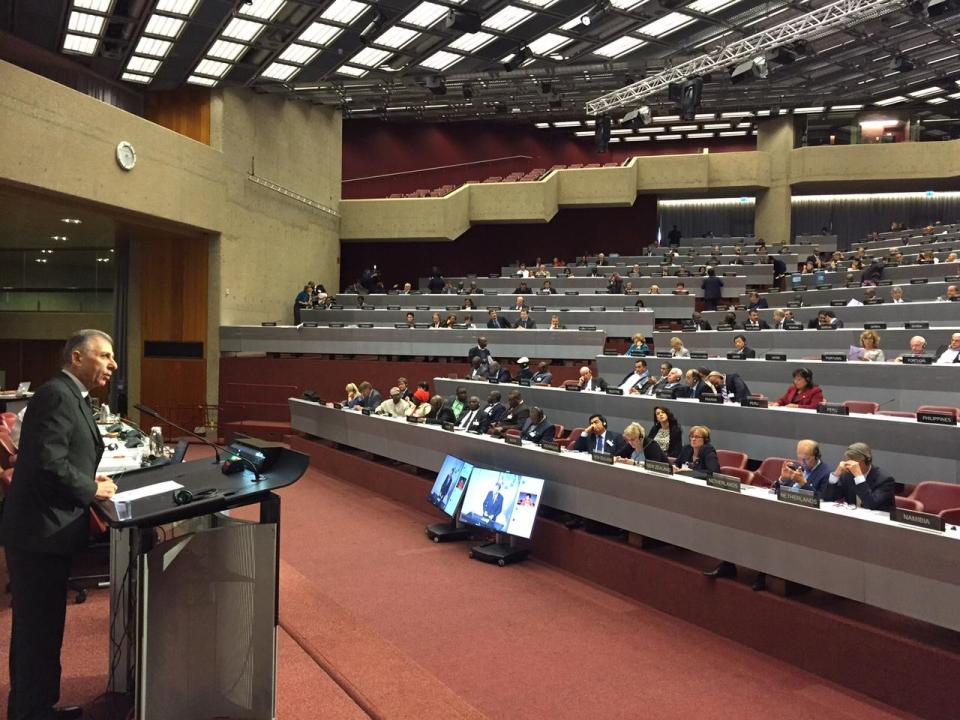
Jean-Paul Laborde interacting with parliamentarians.
With terrorism remaining a priority concern for the international community, Members of Parliament from across the world focused on what actions national parliaments can take or are taking to meet international commitments to counter this threat when they met at the 133rd Inter-Parliamentary Union (IPU) Assembly in Geneva 17-21 October 2015.
ASG Laborde addressing the IPU Assembly.
Since 1996, IPU members have adopted 12 resolutions related to terrorism, the most recent at the Hanoi Assembly in March 2015, and have also committed to backing the United Nations Global Counter-Terrorism Strategy and all relevant UN Security Council resolutions which underscore the important role of parliaments in ensuring States comply with international law in efforts to combat this crime. To make progress on these commitments, to better understand how the Global Strategy is being implemented, and to identify legislative gaps on countering terrorism, MPs engaged in various discussions with key UN officials and experts during the Assembly.
Assistant Secretary-General and Executive Director of the United Nations Security Council Counter-Terrorism Committee Executive Directorate (CTED), Jean-Paul Laborde, addressed IPU members gathered in Geneva on 20 October 2015.
“Parliaments have played a crucial role in counter-terrorism efforts since the adoption of Security Council resolution 1373, adopted in the wake of the attacks of 11 September 2001. Their role is all the more important today, as we work to promote the implementation of resolution 2170, which designates the so-called Islamic State of Iraq and the Levant (ISIL) as a terrorist organization; resolution 2178, which addresses the foreign terrorist fighter – or FTF – phenomenon; and resolution 2199, in which the Security Council addresses measures that aim at countering the financing of ISIL,” said Mr. Laborde.
“These resolutions impose on Member States the obligation to legislate on these specific issues. In drafting the required legislation, Governments and parliaments must strike a difficult and delicate balance: whether in order to prevent the flow of FTFs while also protecting freedom of movement; prevent incitement while also protecting freedom of expression; or impose financial sanctions while also protecting the right to fair treatment,” underscored the Assistant Secretary-General.
“It is of utmost importance to further strengthen cooperation between the Counter-Terrorism Committee, CTED, IPU, and national parliaments in countering terrorism and bringing perpetrators to justice,” concluded Mr. Laborde.
Expert panel featuring UNODC’s Fedotov, CTED’s Laborde, and IPU’s Chungong.
Other speakers on the expert panel on Parliamentary action on meeting international commitments on counter-terrorism included the Executive Directors of the United Nations Office on Drugs and Crime (UNODC) Yuri Fedotov, and of the Global Community Engagement and Resilience Fund, Khalid Koser. The Speaker of Pakistan’s Senate Mian Raza Rabbani and parliamentarians from France and Cameroon also provided input on their parliamentary experience in combating and preventing terrorism. The aim of the panel was to strengthen coordination between IPU and the relevant UN organizations in efforts to counter terrorism.

